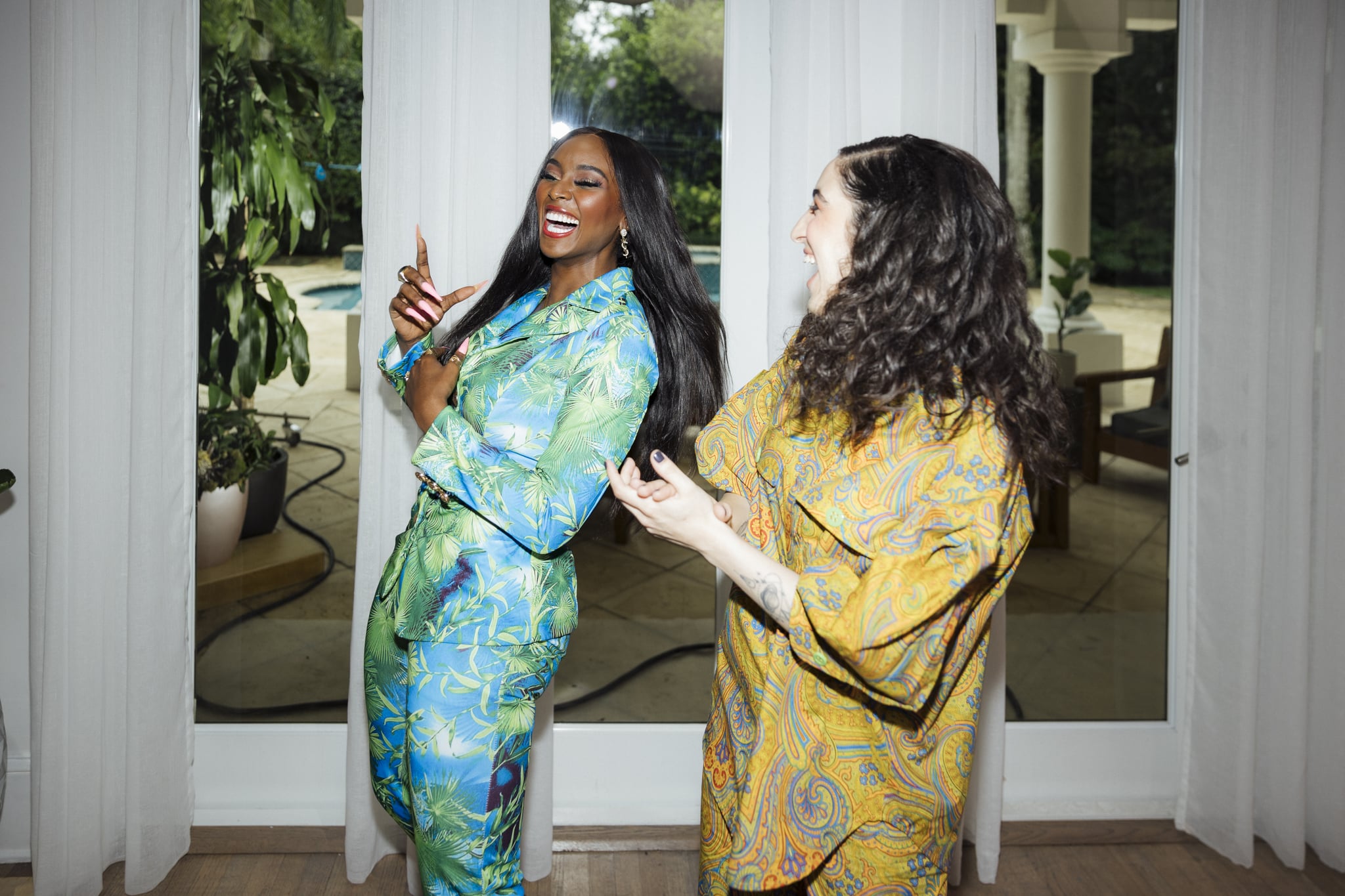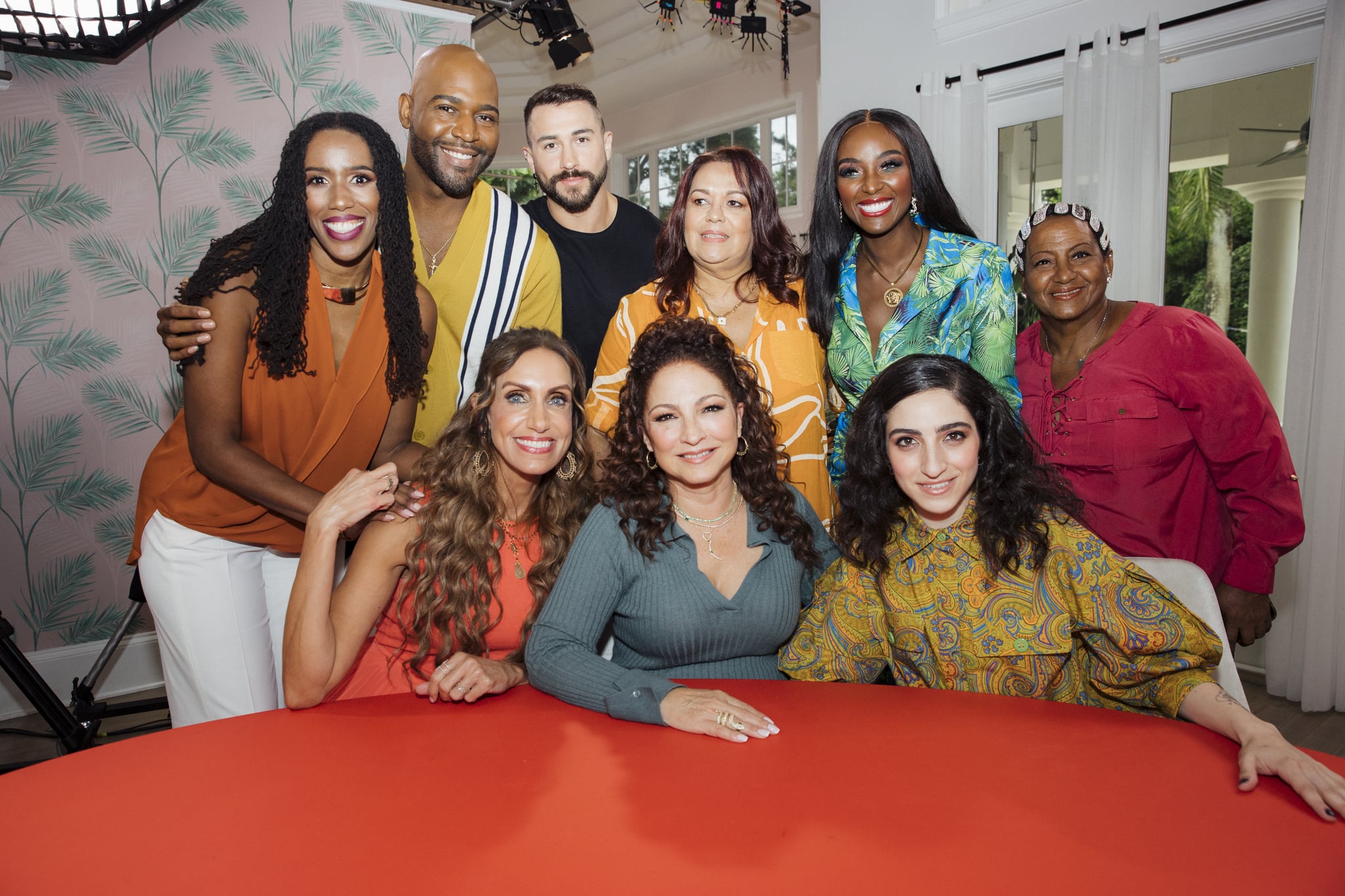
The Latinx community is far from perfect. We're more of a revel-in-our-own-disfunction type of group. Now, I know plenty of people who see the beauty in our culture and many who are proud of their respective heritages, myself included. But there are a lot of things that exist in our communities that have to change, and that's exactly what Red Table Talk: The Estefans [1], featuring three impressive Estefan women (iconic singer Gloria claro, her Emmy-award-winning niece Lili, and her daughter Emily, representing the younger generation) are trying to tackle on their Facebook Watch web series. In each episode they are joined by a rotating slate of guests all discussing taboo topics [2] within our community.
This week, in an episode titled "Black & Latin: Racism Within", the trio touched on the colorism issues that still exist in Latinx communities. Our communities are famously mixed but as many scholars [3], Black Latinxs, and mestizas who are paying attention [4] will tell you, mestizaje [5] has not made us more equal. If anything, it's hidden the way racism still orders our society, making it harder to call out and change.
The Estefans and friends get right into it in this episode, bringing to the table Queer Eye [6]'s Karamo Brown [7], who has a Cuban grandmother and is unmistakably Black. Karamo recounts his family shaming him for his dark skin to the point where he always worried about playing outside as a kid. He also remembers family members pinching his nose to try to make it more narrow.
"For me, playing outside as a kid was nerve-wrecking because my grandmother would say, don't go outside and don't darken up my family. So I would not go outside until 5 p.m. because then the sun would be less," he shared. "And I still get emotional right now because you think, I'm a kid and I should not have to be thinking about not going outside and playing because I don't want to get darker, so that my grandmother doesn't say a comment."
Having grown up experiencing racism within his own family and community, it's no wonder he's always been hesitant to identify as Latino. Lili says this dynamic "breaks her heart," and the show reminds us that with all our mixing, family bonds haven't made Latinxs less racist but rather invited racism inside too many of our homes.
The episode's guest, Amara La Negra [9], expands the conversation outside of the family, recounting what it was like to be the first and only Black person in Latinx spaces like Sabado Gigante. She says the experience felt like being "the bug inside the cup of milk." From being denied roles because of the color of her skin to getting jumped as a kid, Amara experienced racist acts big and small. The burden of racism is heavy on Black Latinas like Amara, something the Estefans admit they'll never truly know.

The last guest to be introduced is Dr. Elizabeth Hordge-Freeman, who provides the stats and connections to contextualize it all. She breaks down some harrowing dynamics like how under-resourced families make choices between children, giving lighter-skinned kids more food, education, and opportunities, because they believe they have a better chance to succeed. In a truly disturbing example, she tells of one father "who literally gave away" his darker skin daughters to raise the lighter-skinned ones.
Dr. Freeman also breaks down the difference between race, ethnicity, and nationality. The group sitting at the table tries to use her framework but can't quite wrap their heads around it, calling out nationalities to describe race. It's a quick moment but one that proves just how counterintuitive it all is [10]. These socially constructed categories don't map to Latinx identities very well. Furthering that point, the group eventually maps out Lili's identity as a test case, deciding on her race (white), ethnicity (Latina/Cuban), and nationality (She's a US citizen). I saw her squirm under these designations, clearly feeling they fail to tell her story.

And it's true, we "Latinxs" don't have good ways to talk about our identities. It's why we can't agree on a name for our group [11]. And why so many of us don't know what box to check [12] on the census. The thing is though, those choices are fraught with those closer to whiteness like Lili (and I speak for myself here, too) having more options and opportunities than our darker-skinned and consistently racialized peers.
Episode 11 of Red Table Talk: The Estefans makes this point strongly. From the outset, Gloria and her family are clear that Karamo, Amara, and other Black Latinxs [13] have equal claim to Latinidad. And with that as a given, the show can then pivot to exploring what racism looks like in Latinx families, communities, and the US at large. The big takeaway is that we have a lot of work to do. Karamo tells Black Latinxs to love themselves. Amara and Emily ask Latinxs to stop being such hypocrites and really root out racist attitudes. Dr. Freeman points to the systemic changes we need. To truly address racism, we need to do all that and more. Let's get to it.
